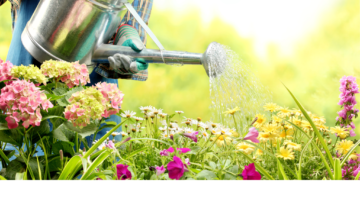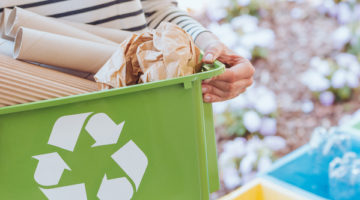
To most of us the world’s usage of water doesn’t seem like a pressing threat; after all, 71% of the Earth’s surface is covered in water. Though that sounds like a lot, only 3% of this water is freshwater, and only 17% of this freshwater is actually potable (safe to drink).
As the global population continues to grow and the effects of climate change become more pronounced, the strain placed on this already insubstantial amount of potable water is becoming greater and greater. The urgency to curtail our wasteful use of water should be clear; we need to take steps to save water and we need to take them now.
Most of us know just how incredibly important water-saving is, but fewer of us understand just how easy it can be. It doesn’t need to be a Herculean effort, it can be as simple as changing your daily routine. To help homeowners more efficiently use water, we have put together this a few achievable changes they can make.
Installing a water meter
Installing a water meter gives you a financial incentive to keep your water usage to an absolute minimum, and can save a lot of people a lot of money. A metered system rewards lower water use with savings on your bills, and making you think twice about the water you use. By holding your household financially accountable for the amount of water you use, installing a water meter is a shrewd water saving move.
Circulating pumps
By more effectively heating the water that services your home, installing a circulating pump can reduce the amount of energy your home expends. Energy efficient circulating pumps like these ones from Pump Sales Direct, can help transform the way your home heats and transports water, resulting in significant savings. Combined with a water meter, you can reduce the amount of money you spend on water as well as heating.
Rainwater harvesting
Britain has always received more than its fair share of rainfall. So why not turn this ordinarily unwelcome guest into something of value? Rainwater harvesting presents you with such an opportunity. If you want to really get the most savings out of harvesting water, you’ll want to bypass shelling out for an expensive system that integrates directly into your roof or lawn, and instead opt for a decidedly more DIY method: water butts. Once the tank is full of rainwater, it’s up to you to reapportion it to the parts of your home and garden that need it most.
Greywater recycling
Greywater recycling is still very much a fledgling enterprise for homeowners, though in large scale operations the efficacy has been well proven. Downsizing greywater recycling for the home has proven to be something of a problem, and as the Guardian attests, greywater recycling is yet to become a financially viable pursuit for homeowners. That said, as the technology continues to develop we can expect to see greywater recycling become a more and more popular option for a wider variety of buildings.












No Comments yet! Be the first one.